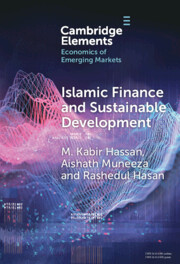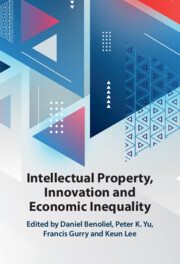294 results
13 - China’s Approach to Investment Facilitation
- from Part III - Regional Perspectives of Investment Facilitation Rule-Making
-
-
- Book:
- The Making of an International Investment Facilitation Framework
- Published online:
- 13 March 2025
- Print publication:
- 20 March 2025, pp 348-363
-
- Chapter
-
- You have access
- Open access
- HTML
- Export citation
Embedding Conditionality in the Special and Differential Treatment in WTO Disciplines on Fisheries Subsidies to Achieve Fishery Sustainability
-
- Journal:
- World Trade Review , First View
- Published online by Cambridge University Press:
- 11 March 2025, pp. 1-27
-
- Article
-
- You have access
- HTML
- Export citation

Islamic Finance and Sustainable Development
-
- Published online:
- 06 March 2025
- Print publication:
- 06 March 2025
-
- Element
- Export citation
A framework for scalable ambient air pollution concentration estimation
-
- Journal:
- Environmental Data Science / Volume 4 / 2025
- Published online by Cambridge University Press:
- 03 March 2025, e17
-
- Article
-
- You have access
- Open access
- HTML
- Export citation

Will Heritage Save Us?
- Intangible Cultural Heritage and the Sustainable Development Turn
-
- Published online:
- 24 February 2025
- Print publication:
- 20 March 2025
-
- Element
- Export citation
9 - Fifty Years of Advancing Peaceful Change
- from Part III - Practice
-
-
- Book:
- International Organizations and Peaceful Change in World Politics
- Published online:
- 30 January 2025
- Print publication:
- 06 February 2025, pp 204-224
-
- Chapter
- Export citation
Free Trade Agreements as Sites of Economic Diplomacy: Agreeing Common Standards for Sustainable Development
-
- Journal:
- World Trade Review , First View
- Published online by Cambridge University Press:
- 30 January 2025, pp. 1-20
-
- Article
-
- You have access
- Open access
- HTML
- Export citation
The concept of sustainable development in investment arbitration: A disconnect from investment policymaking and international adjudication
-
- Journal:
- Leiden Journal of International Law , First View
- Published online by Cambridge University Press:
- 30 January 2025, pp. 1-26
-
- Article
-
- You have access
- Open access
- HTML
- Export citation
Capturing food insecurity data and implications for business and policy
-
- Journal:
- Proceedings of the Nutrition Society , First View
- Published online by Cambridge University Press:
- 24 January 2025, pp. 1-5
-
- Article
-
- You have access
- Open access
- HTML
- Export citation
Water scarcity: A global hindrance to sustainable development and agricultural production – A critical review of the impacts and adaptation strategies
-
- Journal:
- Cambridge Prisms: Water / Volume 3 / 2025
- Published online by Cambridge University Press:
- 13 January 2025, e4
-
- Article
-
- You have access
- Open access
- HTML
- Export citation
2 - Market Failures and Behavioural Anomalies
-
- Book:
- An Introduction to Energy Economics and Policy
- Published online:
- 19 December 2024
- Print publication:
- 19 December 2024, pp 21-48
-
- Chapter
-
- You have access
- Open access
- Export citation
Introduction
-
-
- Book:
- Intellectual Property, Innovation and Economic Inequality
- Published online:
- 05 December 2024
- Print publication:
- 12 December 2024, pp 1-14
-
- Chapter
-
- You have access
- Open access
- HTML
- Export citation
14 - Distributive Justice beyond Intellectual Property Laws
- from Part III - Intellectual Property and Global Inequality
-
-
- Book:
- Intellectual Property, Innovation and Economic Inequality
- Published online:
- 05 December 2024
- Print publication:
- 12 December 2024, pp 349-368
-
- Chapter
-
- You have access
- Open access
- HTML
- Export citation
‘Local Communities’ and the Development Conundrum: Where International Investment Law Meets Human Rights and Businesses
-
- Journal:
- Business and Human Rights Journal / Volume 9 / Issue 2 / June 2024
- Published online by Cambridge University Press:
- 10 December 2024, pp. 270-293
-
- Article
-
- You have access
- Open access
- HTML
- Export citation

Intellectual Property, Innovation and Economic Inequality
-
- Published online:
- 05 December 2024
- Print publication:
- 12 December 2024
-
- Book
-
- You have access
- Open access
- Export citation
4 - A Joint Enterprise
-
- Book:
- International Law and the Significance of Disciplinary Boundaries
- Published online:
- 21 November 2024
- Print publication:
- 28 November 2024, pp 84-124
-
- Chapter
- Export citation
Strong sustainability and the environmental dimension of the Sustainable Development Goals
-
- Journal:
- Global Sustainability / Volume 7 / 2024
- Published online by Cambridge University Press:
- 22 November 2024, e52
-
- Article
-
- You have access
- Open access
- HTML
- Export citation
5 - Reinventing Industrial Policy
-
- Book:
- Reimagining Prosperity
- Published online:
- 18 October 2024
- Print publication:
- 21 November 2024, pp 139-170
-
- Chapter
-
- You have access
- Open access
- HTML
- Export citation
2 - Conceptualising
- from Part I - Understanding Perspectives
-
- Book:
- Urban Nature
- Published online:
- 14 November 2024
- Print publication:
- 07 November 2024, pp 11-25
-
- Chapter
- Export citation
The rise of smart agriculture in China: current situation and suggestions for further development
-
- Journal:
- Experimental Agriculture / Volume 60 / 2024
- Published online by Cambridge University Press:
- 04 November 2024, e28
-
- Article
-
- You have access
- HTML
- Export citation


